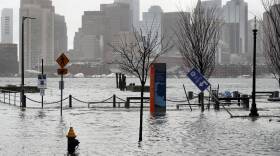The sustainable future we are collectively building comes with significant environmental costs, primarily felt by the global south. The mining and processing of rare earth metals, nickel, cobalt, copper, and many other critical materials, essential for electrification and renewable technologies, often result in considerable ecological damage.
These activities can lead to deforestation, contamination of water sources, soil erosion, and the emission of harmful gases. Consequently, the health and safety of workers and local residents are compromised along with the environment. All of this stands in stark contrast to the overall goals of the green revolution, but currently represents an unavoidable aspect of progress.
This talk explores how the mining and extraction of these materials, while essential for driving forward the clean energy revolution, often contradicts the principles of environmental stewardship. The lecture particularly focuses on the impact in the global south, where much of the world's mining and refining activities take place, often with less stringent environmental regulations and oversight. This raises critical questions about the true cost of our transition to renewable energy and electric mobility.
In response to these challenges, Dr. Tomas Villalón shares Phoenix Tailings’ transformative approach to mining and material processing. Our innovative strategies aim to revolutionize the industry by extracting rare earth metals and other crucial materials sustainably. He discusses their cutting-edge techniques for minimizing ecological impact through rethinking the approach to material refining and the remediation of toxic waste. By turning a historically pollutive process into a more environmentally responsible one and cleaning up the toxic byproducts of mining operations, Phoenix Tailings is not only contributing to the cleaner production of electrification materials but also paving the way for a more equitable and truly sustainable future.
Partner:
Charles River Museum of Industry & Innovation









